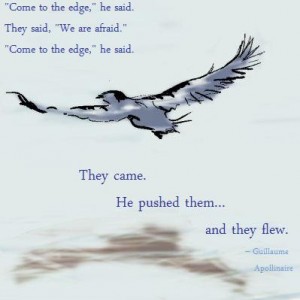“The reputation through a thousand years may depend upon the conduct through a single moment.” – Ernest Bramah
I’ve been seeing quite a few heated conversations on the internet lately. Of course, certain subjects lend themselves to such warfare more than do others, as do certain venues. Nonetheless, I’ve been surprised by a few of them.
Who would have thought, for example, that posting a job opening at LinkedIn would generate snarky, combative responses? Do potential applicants think that will leave them any chance of acceptance? Really? Who goes into a job interview, for example, and blurts right out, “Okay, Mr. Hiring Official, so what are you going to do for me?” Yeah, there’s a recipe for success.
Well, once you realize that some of those snarky comments come from potential competitors, it’s easier to understand their attitudes, at least. What I don’t understand is why they would they engage in that sort of activity on a site dedicated to professional advancement.
Seriously, what could such behavior possibly do for their reputations?
That brings me to the overall point of this post. In the new internet environment, it seems to me that one must be careful not to weave a web of discontent and anger at every opportunity. I’m not suggesting we shouldn’t be honest; of course, we should. I am suggesting that sometimes it’s simply best to walk away. Be polite. Be quiet. Don’t pick fights.
I doubt anyone wins those fights, in the end. I suspect both parties are damaged, to some degree. That naturally begs the question: What should I do if someone attacks me? Should I not respond at all?
Well, sometimes yes… and sometimes no. Perhaps a simple “Oh brother” or “Good grief” will make your point, and throw the dirt back on the muddy snark. Perhaps you’ll require a larger response at times, but exercise caution. Remember your mother’s admonition when you were in the third grade: “Just because Billy wants to jump off a bridge, doesn’t mean you have to jump off a bridge.”
In an electronic medium, where we never meet face-to-face or engage in coordinated physical activities, we have only our posted words to build and protect our reputations. Furthermore, that reputation will be the primary means by which we build our business, whatever that may be.
It sure is difficult, at times. I’ve encountered circumstances in which I wanted to unleash a barrage of 4-letter words. Yet whom would that harm more? My target… or me?
To quote the bard, “Aye, there’s the rub.”
———-





You're so right. People tend to hide behind the perceived anonymity of being online, that they behave in ways here they would never (I hope) do in real life. (That sentence was really hard to write, btw. I need my editor! lol)
In situations like those, I try to just keep a level head, and not engage in a way that I could possibly regret later. By the way, I think you handled that LinkedIn conversation well.
Thanks, Kimberly, I was truly taken aback by parts of that LinkedIn conversation. Color me naive or overly optimistic, but I've always believed it best to appeal to people's better angels, rather than to summon their inner demons. Those who choose the latter option will surely pay some price for it later, even if just to minimize their online opportunities.
So much of the world is moving to the internet, and one cannot truly hide there, remaining completely anonymous, particularly at a site like LinkedIn. I think they'll be in for a rude awakening.
Funny that you posted this today… I was just thinking last night about the kind of image authors should cultivate on the Internet. Some come across as obnoxious, grumpy, or downright mean. Some come across as obsequious and overly excitable with squees and OMGs and !!!!s and best evars everywhere. There must be something between Don Rickles and High School Cheerleader, mustn't there?
Course, even when I was a cheerleader, I wasn't much of a squee-er… Maybe that's why I wasn't a very good cheerleader… 😛
Yeah, Amy, I think it's best that we try not only to be ourselves, but to be our BEST selves.
"So act that your principle of action might safely be made a law for the whole world." — Immanuel Kant